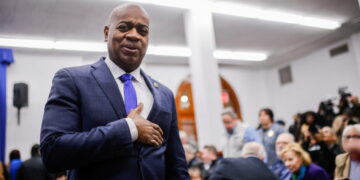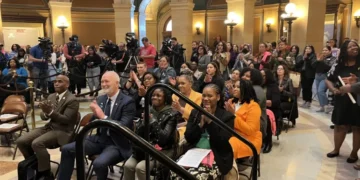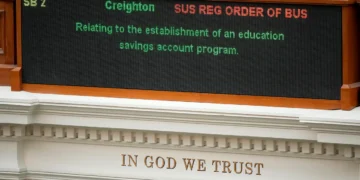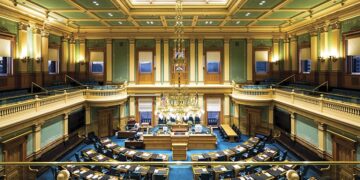March 6, 2025 Story by: Editor
Ed Gainey, Pittsburgh’s first African American mayor, has a rich history rooted in the city. Born on February 20, 1970, in East Liberty, he was raised by his single mother, Darlene Gainey-Craig. With the support of his extended family and community, Gainey graduated from Peabody High School in 1988. He began his higher education at the Community College of Allegheny County before transferring to Morgan State University in Baltimore, Maryland, where he earned a Bachelor’s degree in Business Management in 1994.
Gainey’s political journey began as a legislative aide to Pennsylvania State Representative Joseph Preston, Jr. He later served as a Community Development Specialist under two mayoral administrations, collaborating with the Pittsburgh police department to enhance recruitment and hiring processes. After two unsuccessful bids for the 24th District seat in the Pennsylvania House of Representatives in 2004 and 2006, Gainey became chairman of the Pittsburgh Democratic Party Committee in 2010. In 2012, he secured the 24th district seat, representing Pittsburgh’s predominantly Black neighborhoods, including Homewood, East Liberty, East Hills, and Lincoln-Lemington, until 2022.
In January 2021, Gainey announced his candidacy for mayor, challenging incumbent Bill Peduto. He won the Democratic primary in May 2021 with 46% of the vote and secured 70% in the November general election against Republican Tony Moreno. Gainey was sworn in as Pittsburgh’s 61st mayor on January 3, 2022.
As mayor, Gainey has prioritized public safety by hiring more police officers and enhancing their training. He appointed a new police chief and advocated for criminal justice reforms, including the decriminalization of marijuana. His administration also focuses on quality education, public transportation improvements, and increasing affordable housing in Pittsburgh.
Gainey is committed to making Pittsburgh a model for bridging the gap between environmental and labor movements. His vision includes leveraging the renewable energy and sustainable construction sectors to combat climate change while creating good union jobs, building healthy and affordable housing, and growing the regional economy.
Source: Black Past

















